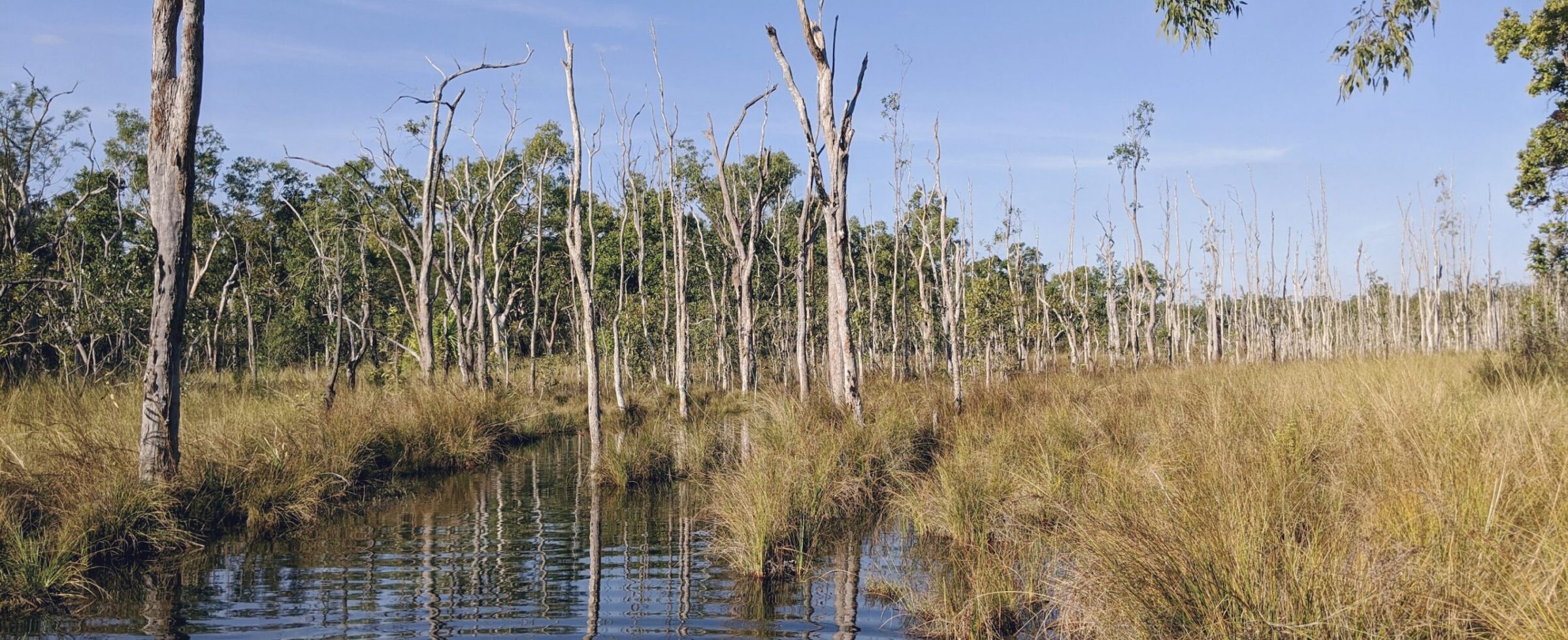Unexpected lessons: Checkpoint Winter 2021
CMS missionaries Ian and Jenny Wood are teachers at Nungalinya College in Darwin, a theological college for Indigenous students. Their first year of ministry in North Australia coincided with the arrival of the Coronavirus.
In February 2020, Jenny and I set out for Numbulwar on the Arnhem Land coast, to learn. We’d just arrived in the Northern Territory. The plan was to teach at Nungalinya College in Darwin. But, outside term time, most students live in communities like Numbulwar, so experiencing life there was an obvious place for us to begin this learning.
A positive start
We had Kriol language and culture to learn, and much more. Greg Anderson—Anglican Bishop of the Diocese of the Northern Territory and former CMS missionary—has a long history with Numbulwar, so he was well placed to introduce us. By the time he flew out, we had a program and a plan, and we were optimistic.
Within a couple of weeks, we were joining in church and evening fellowship, exploring the possibilities of small groups, and spending time with people.
The news was full of bushfires on the east coast of Australia, interspersed with stories of a strange new disease in Wuhan, China.
To stay or go?
We’d been in Numbulwar a little less than six weeks when everything changed. The remote Northern Territory was divided into biosecurity zones. If we left our zone, we would not be able to return. We felt the importance of keeping remote communities as COVID-safe as we could. Many local activities and ministries were cancelled. Small groups and evening fellowship were on hold. Church was small, outdoors, and distanced.
We questioned whether it was worthwhile staying in Numbulwar. With cultural activities not happening, it would be less easy to learn the things we’d come to learn. Without small groups or evening fellowship, it would be much more difficult to make the connections we were seeking with people.
After long discussions with CMS and others, we stayed, but in a changed regime. We continued language study, although most of our conversations were still in English. Most days we would head into town. Most days we’d fall into conversation with people, and often ended up praying with them.
The mission advantage
Numbulwar was established in the 1950s as a CMS mission, and we found that being CMS missionaries meant we were positively received. Any day, we could easily wind up sitting on the beach or in someone’s front yard, surrounded by dogs and neighbours, and just talking.
We had conversations about the COVID rules and how to apply them. People were also keen to discuss how the pandemic fitted with God’s goodness and his care for his people. There were questions about plagues in the Bible, and signs of Jesus’ return.
We both tried to have one-to-one Bible studies with people—out in the open, and with distancing. We managed it to a limited extent.
We went to Numbulwar to learn, and by the time we flew out in June, we’d learned a lot. We’d experienced life in a remote community while it was under special kinds of stress. We’d seen the resilience of Christian believers in a struggling church. We’d been with people working out how their hope in Christ shaped how they thought about things here and now. We had glimpses into how people in Numbulwar talk about health, sickness, rules, stresses, evidence and experience. We ourselves have had experiences and conversations to digest for a long time to come.
GIVE
CMS values training and emphasises the importance of learning language and culture. Your support of CMS enables us to invest in extensive and ongoing training for missionaries so they can be better equipped to share Jesus. Please give at give.cms.org.au












































































































